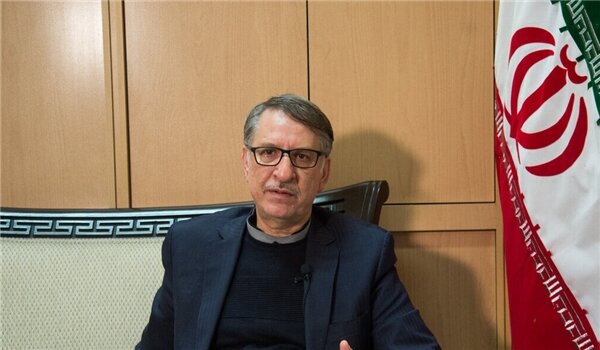Iran underscores peaceful settlement of conflict in Yemen

TEHRAN- Iran’s deputy foreign minister for legal and international affairs on Wednesday underscored Tehran’s long-held policy that a comprehensive Yemeni-Yemeni dialogue would be the best choice to put an immediate end to the crisis in Yemen.
Addressing a UN Conference on Disarmament in Geneva, Switzerland, Mohsen Baharvand voiced Tehran’s concerns over Riyadh’s warmongering policy in Yemen.
He said the Yemeni crisis should be settled via dialogue and diplomacy.
In response to comments by Saudi Arabia’s foreign minister who had criticized Iran for helping the people of Yemen, he said, “This is a war that you (Saudis) have started and still continuing it.”
“Do not blame others for your own mistakes. The Islamic Republic of Iran has always supported negotiations for ending this war. You (Saudis) have no right to treat the people of the region as you wish and expect them not to respond to you,” Baharvand was quoted as saying by the FNA.
In a meeting with Sweden's Special Envoy for Yemen Peter Semneby in Tehran in November, Ali Asqar Khaji, a senior aide to the Iranian foreign minister, laid emphasis on Tehran’s comprehensive efforts to restore peace and security to Yemen.
“An immediate stop to clashes, removal of a siege on the country and holding Yemeni-Yemeni dialogue are some basic necessities” to end the five-year war conflict, Khaji said, adding that Iran would welcome continued cooperation with Sweden in this regard.
He highlighted Ansarullah’s adherence to the Stockholm agreement but criticized the Saudi-led coalition for failing to fulfill their commitments under the agreement.
Semneby, for his part, said that the Stockholm agreement is the first accepted deal among warring sides in Yemen.
“Sweden voices support for the Stockholm agreement as well as efforts made by the United Nations and UN special envoy for Yemeni affairs to attain comprehensive diplomatic solution,” Semneby stated.
Saudi Arabia has been striking Yemen since March 2015 to restore power to fugitive president Mansour Hadi, a close ally of Riyadh. The Saudi-led aggression has so far killed more than 20,000 Yemenis, including hundreds of women and children. Despite Riyadh's claims that it is bombing the positions of the Ansarullah fighters, Saudi bombers are flattening residential areas and civilian infrastructure.
Yemen is the world’s largest humanitarian crisis with more than 22 million people in need and is seeing a spike in needs, fueled by ongoing conflict, a collapsing economy and diminished social services and livelihoods. The blockade on Yemen has smothered humanitarian deliveries of food and medicine to the import-dependent state.
The UN has repeatedly criticized the Saudi-led military coalition's bombing campaign and placed it on a blacklist of child rights violators last year.
A UN panel has also compiled a detailed report of civilian casualties caused by the Saudi military and its allies during their war against Yemen, saying the Riyadh-led coalition has used precision-guided munitions in its raids on civilian targets.
Iranian diplomat Mohsen Baharvand tells Saudi foreign minister: “Do not blame others for your own mistakes. The Islamic Republic of Iran has always supported negotiations for ending this war. You have no right to treat the people of the region as you wish and expect them not to respond to you.”
MJ/PA

Leave a Comment